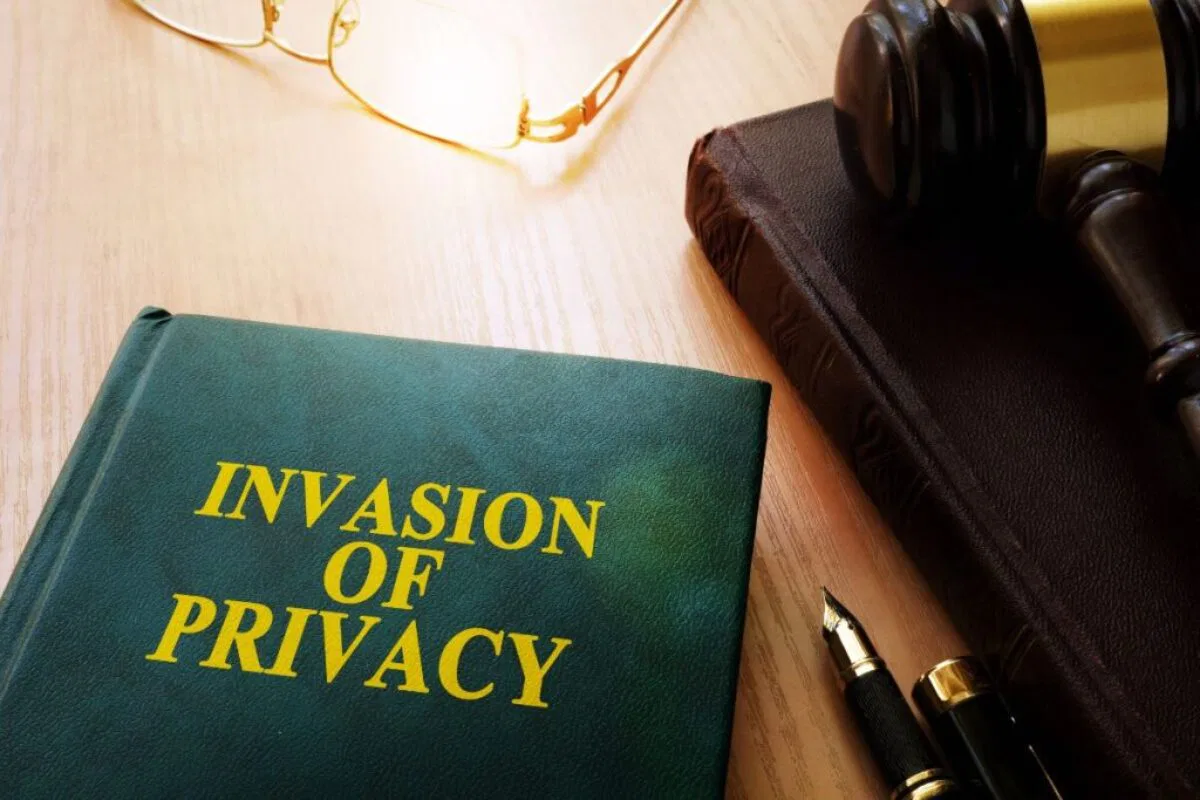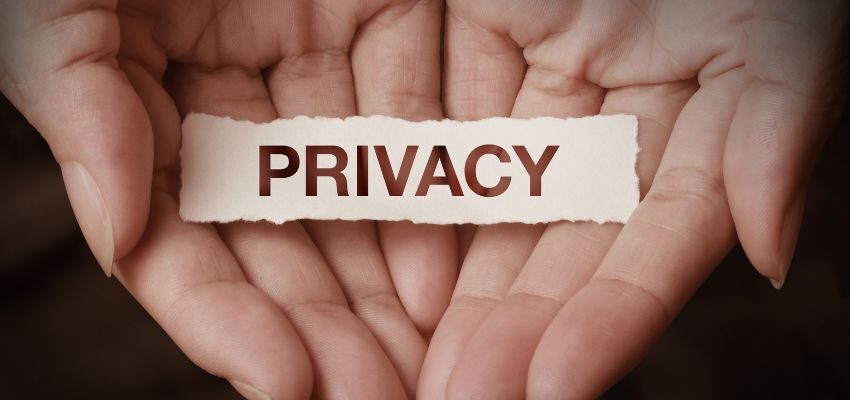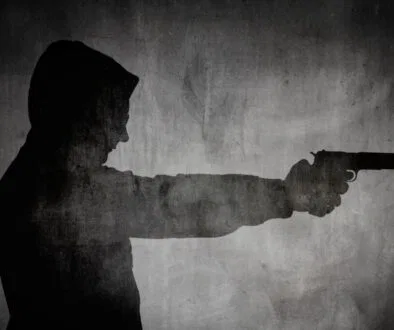What Is Invasion Of Privacy And Can You Go To Prison For It?

Published November 21, 2023
In the past, a case of invasion of privacy was relatively easy to spot. After all, the offender must be in the vicinity of the victim to invade their privacy. Today, however, with the use of modern technology, an offender can invade a victim’s privacy without leaving their house. So, catching them in the act can be tricky.
For that reason, it has become common to falsely accuse someone of this crime despite the lack of evidence. You’ve come to the right place if you or a loved one are victims of such accusations.
This article will explore how this specific crime works by reviewing some real-life invasion of privacy examples. But first, it would help if you understood what invasion of privacy is in the first place.
What Is Invasion Of Privacy?

As the name implies, invasion of privacy is when a person’s privacy is violated in any way. To be precise, it’s any action that publicizes any information about an individual that’s supposed to be private.
The more technical definition would be ‘when your reasonable expectation of privacy is invaded.’
The ‘reasonable expectation of privacy’ is essential here, but we’ll get to that later. Now that you know the definition of invasion of privacy, it might be better to illustrate this further by looking at some real-life examples. Remember that the invasion of privacy law for each state varies. It may be best to check your state’s law or consult a personal injury lawyer before bringing legal action.
Real-Life Examples Of Invasion Of Privacy
Below are some of the most common instances that clearly show the violation of privacy:
- Your landlord installed security cameras inside your apartment without notice.
- Your therapist revealed sensitive information about your case to other people.
- Your employer is selling your personal information to a third party without your permission.
- A close relative took a picture of you in the nude and posted it in public.
- The phone company is intercepting your calls.
It can occur in different settings. It can happen to employees, therapy patients, and even average Joes. Each case can be categorized into a type depending on the circumstances.
4 Types Of Invasion Of Privacy

There are four types of privacy invasion, and they typically vary according to how the perpetrator invaded. Here’s a closer look at each type.
1. Intrusion Of One’s Solitude Or Seclusion
Intrusion into an individual’s solitude or seclusion—in other words, intrusion has to do with location.It’s when someone invades your privacy in a place where they shouldn’t have been able to.
Let’s say you’re trying on clothes in a store. Naturally, you’d expect to have privacy while you change in the changing room. However, if you find a hidden camera inside, it’s safe to assume your privacy has been invaded. You expect to be left alone in solitude, yet you were intruded on.
2. Public Disclosure Of Private Facts
Public disclosure of private facts, or disclosure, in short, has to do with sensitive information.
Simply put, this invasion occurs when information that’s supposed to be kept private is made public. Suppose you’re sharing sensitive information with your therapist. If it turns out they share that information with other patients, then they would have invaded your privacy through disclosure.
3. Publicity That Places A Person In A False Light

Publicity that places a person in a false light, also known as deception, concerns reputation.
Deception occurs when someone portrays you to the public in a negative and, most of the time, untrue light. It’s similar to defamation, except it doesn’t require the culprit to outright ‘defame’ you.
For example, a neighbor is telling your other neighbors that there’s a good chance you’re an abuser because of how you act. They’re not defaming you since a case of defamation would have been if they were outright saying you’re an abuser. They’re making suggestive comments that are untrue.
Nevertheless, it still puts you in a negative light. Someone invaded your privacy by meddling in your business, even though there’s no abuse in your home.
4. Appropriation Of A Person’s Likeness For One’s Own Gain
Appropriation of a person’s likeness for one’s gain involves financial gain. It’s when the perpetrator uses information about you for commercial purposes.
If someone takes your photo without permission and sells it online for profit, they invade your privacy by using your likeness.
These are the four main types of invasion of privacy. Keep in mind that some instances can belong to multiple classes at once. Let’s say we combine the first type and the fourth type. So, here’s how it’ll go:
There’s a hidden camera in a store’s changing room. They took pictures of you in the nude and sold them online to earn money. In this case, they invaded your privacy through intrusion and appropriation.
What Counts As Invasion Of Privacy, And What Doesn’t?
Before you can call a circumstance a privacy invasion, there are a couple of conditions that need to be met. Here are some basic requirements, examples that meet these conditions, and counterexamples that don’t.
You Have A Reasonable Expectation Of Privacy

Sometimes people expect privacy in situations where it’s not reasonable.
- EXAMPLE: If you’re changing clothes in a clothing store’s changing room, it’s reasonable and understandable to expect privacy. It’s only common decency for the store.
- COUNTEREXAMPLE: If you’re changing in a sauna changing room, you shouldn’t expect privacy. It’s unreasonable because, in this case, the changing room isn’t locked and accessible to everyone.
The’ Perpetrator’ Intentionally Invaded Your Privacy
There are instances where the supposed perpetrator didn’t intentionally invade your privacy.
- EXAMPLE: You’re changing clothes in a clothing store’s changing room, and a person is peeking at you intently for several minutes. It’s intentional, so in that case, they’ve invaded your privacy.
- COUNTEREXAMPLE: You’re changing clothes in the changing room, forgot to lock the door, and a person accidentally enters. They didn’t intend to see you, so it’s not a crime.
The Facts Disclosed About You Are Private
Some information about you won’t be private, even if it would be publicly disclosed. Some information is already public, but now it’s being revealed to more people.
- EXAMPLE: Your health practitioner is sharing your medical information with other people. Sharing medical information with the public violates privacy because it’s supposed to be private.
- COUNTEREXAMPLE: You won a competition, and a journalist covered you in their news article without your permission. You may not have given permission, but the fact that you won the competition is no longer private. So, while the journalist is disclosing to a larger audience, it’s not an invasion of privacy.
The ‘Perpetrator’ Were Not Obliged To Disclose The Private Facts
In some cases, the perpetrator is legally obliged to disclose private facts about you. If they tell the information, they’re not invading your privacy in those cases.
- EXAMPLE: Your health practitioner shares your medical information with others.
- COUNTEREXAMPLE: Your doctor might be giving your medical details to the police because you’re involved in their investigation. The health practitioner has to disclose the facts because it’s required by law. Hence, they’re not invading your privacy.
The Publicity Is Putting You In A Bad Light

For the third type, invading your privacy only happens if the ‘perpetrator’ publicly embarrasses you. Otherwise, it’s not an invasion of privacy.
- EXAMPLE: A coworker suggests you’re a felon to convince your employer to fire you. You have no criminal records. This violates your privacy because it puts you in a bad light.
- COUNTEREXAMPLE: A coworker is playing a prank on you by telling your other coworkers that it’s your birthday when, in reality, it’s not. It might be a deception, but it’s not an invasion of privacy as it doesn’t put you in a bad light. Your coworker also doesn’t intend to put you in a bad light by doing this.
The ‘Perpetrator’ Is Appropriating Your Likeness For Financial Gain
For the fourth type, invading privacy only occurs if someone uses your image for money. Otherwise, it’s not a privacy concern.
- EXAMPLE: A stranger took a picture of you without your awareness or permission and sold it online to make money. This is an invasion of privacy since they’re earning money from it.
- COUNTEREXAMPLE: A stranger took a photo of you and showed it to a friend, saying you look like a celebrity. This isn’t a privacy threat since they didn’t do it for financial gain.
You Didn’t Authorize Or Give Permission
If you let others invade your privacy, they can use your personal information without permission.
- EXAMPLE: A stranger asked to take a photo of you. You accepted, but when they asked if they could post those photos online, you declined, yet they still did. This is an invasion of privacy.
- COUNTEREXAMPLE: A stranger asked to take a photo of you. You accepted and agreed to have those photos posted on the web. They did so. This doesn’t violate one’s privacy because you authorized them.
What Is The Punishment For Invasion Of Privacy?

The punishment for invading someone’s privacy differs based on the location and case specifics. Numerous sources indicate that the penalties can range from monetary fines to incarceration.
If an individual is arrested for allegedly invading someone’s privacy, they may face a fine of up to $2,500. Sometimes, a convicted person may be sentenced to three to 18 months and fined. Some jurisdictions specify that knowingly and intentionally obtaining a record under pretenses constitutes a misdemeanor, punishable by a fine.
Under specific circumstances, the offense carries a maximum sentence of one year and a fine of no more than $5,000. But in certain areas, the punishments can be harsh, including jail time of 3-5 years and fines up to $30,000.
Sadly, when a family member or someone within your circle finds themselves incarcerated for such transgressions, it’s prudent to consider reliable services for making calls to correctional facilities. Explore reputable jail calling services at SecurTel for an effective way to stay connected.
Grasping Invasion Of Privacy: Rights, Violations, And Solutions
Understanding invasion of privacy is crucial in identifying and addressing violations. While modern technology complicates detection, the fundamental principles remain the same. Knowing your rights and recognizing the nuances of privacy invasion can help protect yourself and others. If you suspect a breach, seeking legal guidance can be pivotal in finding a resolution.
Advertisement
Save 90% Per Minute On Jail Calls With Us
US prisons charge lots of money per minute for long distance inmate calls. The loved ones of inmates are left to pay this bill. For a ten minute phone call you may find yourself paying over one hundred dollars. With SecurTel, you can reduce this charge to a fraction of the cost and only pay the local calling rate. Make calls from across the US or internationally for the local rate and help your family stay connected during a difficult time. Learn more about how to sign up for inmate calls here.

This Content Is Fact Checked
We have conducted thorough fact-checking on this content in-house. Get detailed insights into our website’s editorial standards by clicking here.

About The Author
Judy Ponio is the lead writer for the SecurTel blog. Her passion for true crime stories and criminal justice has fueled her work and inspired millions of readers around the world.



